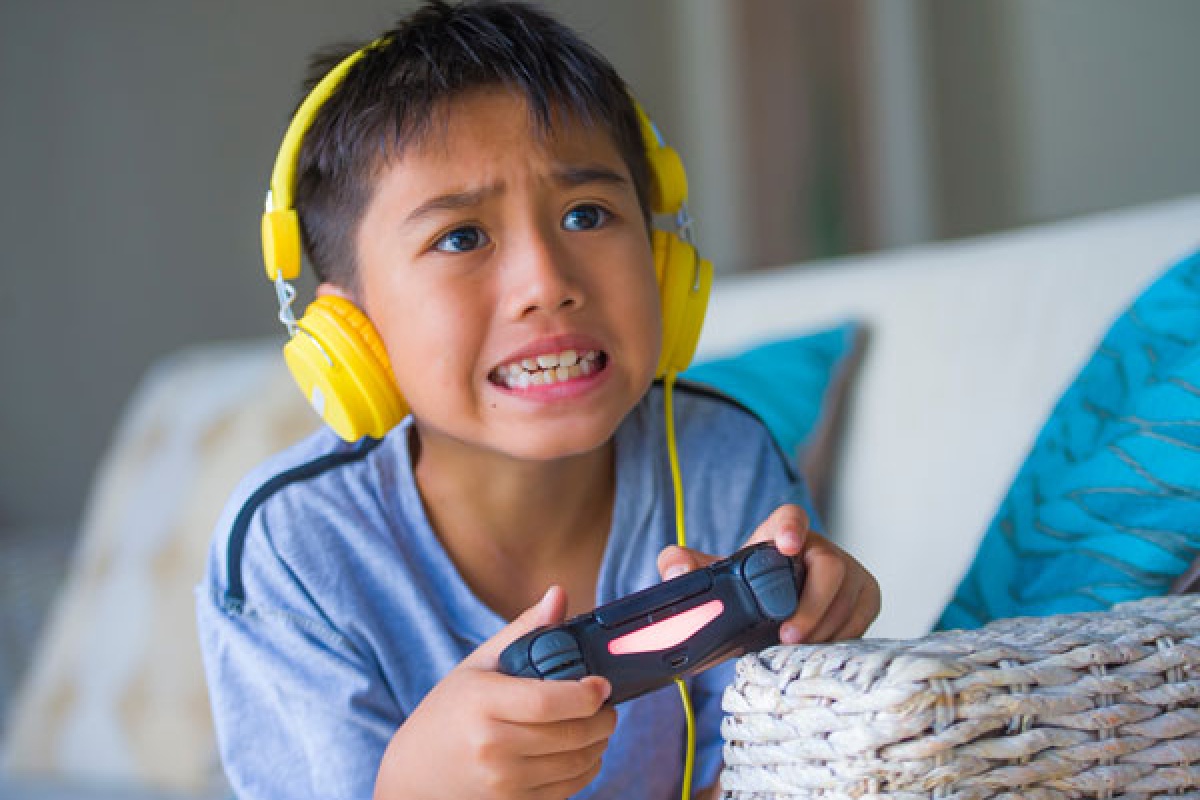

Parenting the Video Game Fanatic: How to Encourage Other Interests
“It’s time for karate class,” I said to my 13-year-old son.
“Do I have to go?”
“Yes.”
This has been a common exchange between us for a variety of activities over the past 10 years. He has tried everything from baseball to cooking class—yet nothing holds his interest as much as video games.
Every now and then I wonder if it is worth investing money and time into classes or sports he doesn’t want to participate in. But if I hold off on signing him up for things, he does nothing except play video games until we try something new again. It’s a never-ending cycle.
Are video games healthy?
My son is not an anomaly. According to the Pew Research Center, 72% of teens—and 84% of teen boys—play video games.
There is a lot of conflicting information about video game use, so it can be hard for parents to know what to allow. It’s screen time, of course, but video gaming is often also a social activity played together with friends either in the same room or online. And if it’s a popular pastime among a teen’s peer group, some parents may be inclined to let them play for an unlimited amount of time with their friends.
Playing video games can have positive benefits, says Dr. Larry D. Rosen, a professor at California State University and author of The Distracted Mind. Gaming “can offer some skill-building, including reaction time, executive functioning, and strategic thinking,” says Rosen. He cautions, though, that “playing video games can be very addictive and create problematic thinking, including desensitization to violence.”
Video game obsession?
Rosen recommends that video game play should be limited since research shows physiological arousal increases when playing—and kids need breaks from that. He suggests limiting gaming for teens to 60-90 minutes at a time, even if parents decide to allow more total time daily.
Maria Sanders, a licensed social worker and certified parent coach, also recommends creating clear boundaries with your teen regarding when and how long they are allowed to play. She says an example of boundaries might be letting teens choose to play an hour of video games either before or after completing homework.
She encourages parents to learn more about their teen’s interest in video games. Sit down and play the games with them. “The child will see that you have an interest in what they are doing,” she says, “and you will learn about why they are so attracted to the game.”
Encouraging other activities
Teens should live “balanced lives and not live solely in the video game,” says Sanders. But if your teen doesn’t express interest in anything else, it may be difficult to figure out which activity or sport to encourage. Sanders suggests asking your teen about the type of video games they like to play. Then you might be able to figure out an activity that uses similar skills or gameplay. An avid Fortnite player, for example, might enjoy a laser tag league.
Parents should avoid simply announcing which activities their teen must do. Rosen stresses the importance of including the child in the decision-making process. With your child’s input, create a list of the types of activities they could do at home during unstructured times or when they feel bored. Similarly, involving your child in discussions about organized extracurriculars will prevent them from feeling forced into participating in certain activities.
Stay positive about video games
Often parents make comments like “video games are a waste of time” or “video games are unhealthy” in an effort to decrease video game use. Rosen says this almost always backfires. Instead, parents could reward the child for responsible behavior. For example, when a child demonstrates that they can stop playing on their own without parent badgering, parents might loosen strict time limits on screen time.
Instead of making negative statements about video games, Sanders says, “The best thing a parent can do is guide their child down a path of self-reflection. Asking questions like, I notice you seem pretty tired after playing video games. How are you feeling? will help your child figure out their own beliefs about video game use.”
Parent negativity can make a teen feel as if they are being judged and misunderstood. Focus on their strengths while playing a video game—perhaps, for instance, their ability to help a friend get to another level. A parent should notice that ability and point out how it might connect to real-life situations. Next step: Parents can help them get out there and do just that.
Too many video games: when to worry
Video game addiction is not yet a disorder recognized by the American Psychiatric Association. The World Health Organization, however, recently recognized the existence of “gaming disorder” for the first time. Excessive video game play and other types of addictions do show similar patterns, says Rosen.
- Some signs parents should look for are:
- Isolating behavior or ignoring family and friends
- Sneaking video game play at night or at friends’ houses
- Changes in eating or sleeping patterns
- A decline in academic performance or not doing homework
- A need to continue playing video games beyond a time limit
- An interest only in playing video games, at the expense of other activities
- Always thinking about video games
If you are concerned about your teen, contact a mental health professional to discuss counseling options.
Cheryl Maguire holds a Master of Counseling Psychology degree. She is married and is the mother of twins and a daughter. Her writing has been published in The New York Times, National Geographic, Parents Magazine, AARP, Healthline, Your Teen Magazine, and many other publications. She is a professional member of ASJA and SATW.





















